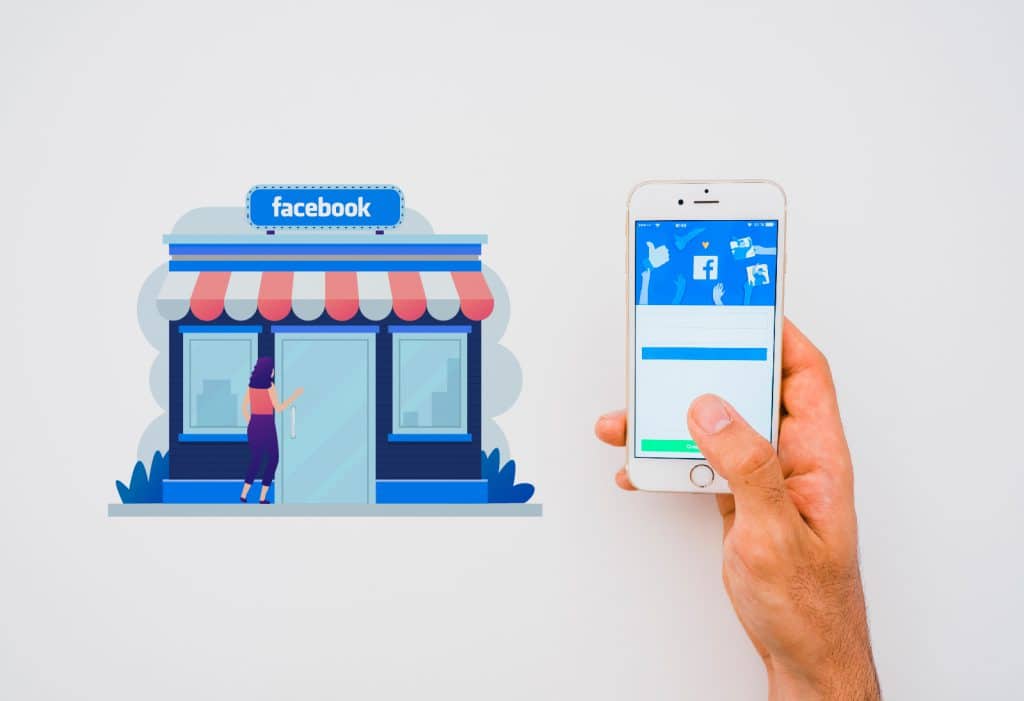
Facebook launches the Shop section
After publishing in May the report on the state of small businesses, which examined 86,000 small businesses in the United States, Facebook noted that 31% of small businesses stopped operating due to the coronavirus crisis.
According to Zuckerberg, one-way companies survive during this period is to move more online. That’s why, as a solution to the current crisis, Facebook has decided to launch the new function “Facebook Shop”, conceived by Mark Zuckerberg as a tool to help small businesses, many of which have had to close their doors and move online because of the Covid19 pandemic.
Announced last May, during a Facebook Live session with Mark Zuckerberg, the new e-commerce feature will allow small businesses to create online shops on both Facebook and Instagram and, in the near future, small businesses will also be able to sell products via Instagram Direct, Whatsapp and Messenger and it will be possible to tag products during live broadcasts.
In a statement launched on his own blog, Facebook shares all the details on the new social-commerce platform:
“We want to help small businesses adapt and make it easier for people to discover and buy what they love.
Right now many small businesses are struggling and with the closing of shops, more and more are trying to bring their business online. Our goal is to make shopping fluid and allow anyone, from a small business owner to a global brand, to use our apps to get in touch with customers. That’s why we’re launching Facebook Shops and investing in features in our apps that inspire people to shop and simplify online buying and selling. “
How does the new Facebook Shop function work?
According to Zuckerberg, the basic idea behind ‘Shop’ is that it allows small businesses to build an online store and sell things directly through the Facebook app family, including Facebook and Instagram.
But let’s see in detail how the Shop option works and what its advantages are.
Well, if you own one of the Facebook products, you can now create a section “shop” directly on your company page or on your Instagram profile and create a catalog of products and services that your potential customers can browse, save, share and even buy.
At launch, stores can be found on companies’ Facebook pages and Instagram profiles. They will also appear in stories or ads.
When you create a store, you can choose the products you want to show and you can customize the look of your shop with a cover image. The items available for purchase will be displayed in the store.
Once a purchase is made, stores will store customer payment credentials, which can be used in Facebook apps.
Stores also allow you to send messages to a company via Whatsapp, Messenger or Instagram Direct to ask questions, get support and track deliveries.
Finally, Facebook is working to integrate loyalty programs with stores so you can keep track of your points and rewards.
How Facebook tells us on its support page, the Shop function can bring a number of great advantages to companies and customers since it allows to:
- Add products to the catalog of your online shop without limit;
- Customize the inventory of products and organize the products in different collections dividing them by category;
- Communicate with customers: customers can send a message to the shop of your Page for any questions.
- Obtain statistical data and analyze the number of views, clicks and purchases obtained for each product.
Is Facebook Shop free?
And as for the costs… for the moment the Shop function is totally free and every commercial activity will be able to create its own shop for free.
Obviously, the service is not free and Facebook will have to earn something.
In fact, when using this function, when a customer makes a payment on the Facebook platform, the merchant will be charged a commission.
With the new function ‘Facebook Shops’, thanks to the large number of users that Facebook can channel to stores, it seems that Facebook wants to launch a potential challenge to rivals such as Amazon or eBay.
However, the founder of Facebook stated that his intention is not to replicate the “end-to-end” experience of Amazon and would rather collaborate with existing e-commerce services such as Shopify, which helps small businesses create online shops and manages analytics and payments.
And you, do you think Facebook will end up dominating the markets as well as social media?
Follow Bitsa’s blog to learn about its evolution.
